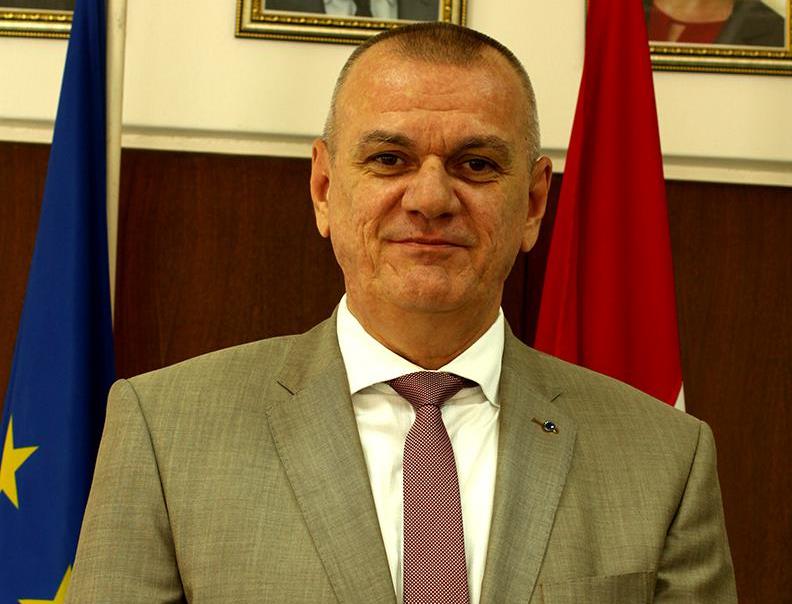By: Binta Jaiteh
The Minister of Foreign Affairs, International Cooperation and Gambians Abroad, Dr. Mamadou Tangara, told lawmakers on Wednesday that his ministry was still gathering information, regarding the “Backway” death toll.
Dr.Tangara was responding to a request by the NationalAssembly Member for Brikama North, Alagie S. Darboe, for him to furnish the House with a list of Gambians, who had travelled or attempted to travel to Europe through irregular means. Darboe was also keen to know whether those, who left the shores of The Gambia for Europe, have arrived or not. He also requested from the government confirmation of “Backway” deaths from January of 2021 to August of 2024.
In response, the foreign minister said his ministry is working with the IOM and foreign missions to identify Gambians, who have tragically lost their lives, en route to Europe.
“We continue to coordinate efforts to trace missing persons and help families where possible,” he told lawmakers.
Dr. Tangara pointed out that it’s important to note that gathering precise data on irregular migration is a complex task given the clandestine nature of such and the various transit routes managed by informal networks.
He explained that the foreign ministry, in collaboration with relevant international organizations for migration, the United Nations High Commission for Refugees and other partners, is committed to monitoring these migratory flows, documenting cases and tracing missing persons where possible.
“Due to the high risk and illegal nature of irregular migration, compiling an exact list of individuals, who have embarked on this journey, is challenging. Many migrants do not register their departures, and the routes they take often bypass official migration channels, making tracking difficult. Despite this challenge, the Ministry is working diligently to gather as much relevant data as possible to respond comprehensively to this request,” he explained.
The Lower Badibou NAM Kemo Gassama further asked the Minister whether his ministry had plans to repatriate stranded Gambians in Tunisia, Niger and Libya.
In response, Dr. Tangara said The Gambia is a country of origin, transit and destination for migrants. He, however, said factors driving migration in the sub-region include high youth unemployment, climate change, and instability.
“Irregular migration, particularly of Gambian youths, has been a challenge with many undertaking dangerous journeys to Europe. The International Organization for Migration, through the support of our traditional partners, continues to complement the government’s efforts to assist Gambian nationals stranded along the western and central Mediterranean route to Europe,” he added.
He said Gambians, who requested to be returned home, are also assisted.
“From January to May 2024, the number of stranded Gambian migrants, who were supported by the government to voluntarily return home, was 1718. One hundred and eighty-two were from Tunisia while four hundred and thirty-three were from Niger and three hundred and three from Libya,” said the foreign minister.
Member for Tallinding Kunjang Musa Badjie asked the Minister if his Ministry knows the number of migrants in each of those countries, who don’t want to return home.
Minister Tangara said in response that it’s a very difficult task because most of the irregular Gambian migrants get rid of their documents.
“In that case, it will be difficult to identify them. Usually, they can only be identified when they are in difficult situations, and sometimes even if you want to identify them, they refuse. If someone happens to die, some of their relatives send documents with the help of IOM. We use forensics to confirm whether this is the actual person or not,” he explained.
He noted that the director responsible for diaspora is a responsible lady, who is constantly in touch with families, whenever approached.
The Member for Kiang West, Lamin Ceesay, asked the Minister whether there are Gambians in Mali and Morocco, who want to return home but are stranded but this was overruled by deputy speaker Seedy Njie.
“We should be serious because this is an issue of illegal migration. You keep on ruling out my question and that is not accurate,” NAM Ceesay angrily told deputy speaker Seedy Njie.
In a heated exchange, the deputy speaker responded that Parliament is guided by rules and procedures, adding that parliamentary rules are guided by the Standing Orders which, he stated, serve as the constitution for lawmakers.
“Whatever we do must be based on the law. Members should be serious with their work. Member for Kiang West is known for unruly behaviour and disruptions of the Parliament. Every Member of Parliament knows that his question was out of order because it is not talking about the original question raised,” deputy speaker Njie contended.
He pointed out that it’s the duty and responsibility of every member of Parliament or the Speaker or Chairperson to bring to order any out-of-order parliamentarian.
“Because you don’t read or you don’t know your Standing Orders and if you are called to order, you must not be angry or be sentimental,” argued the deputy House speaker.





